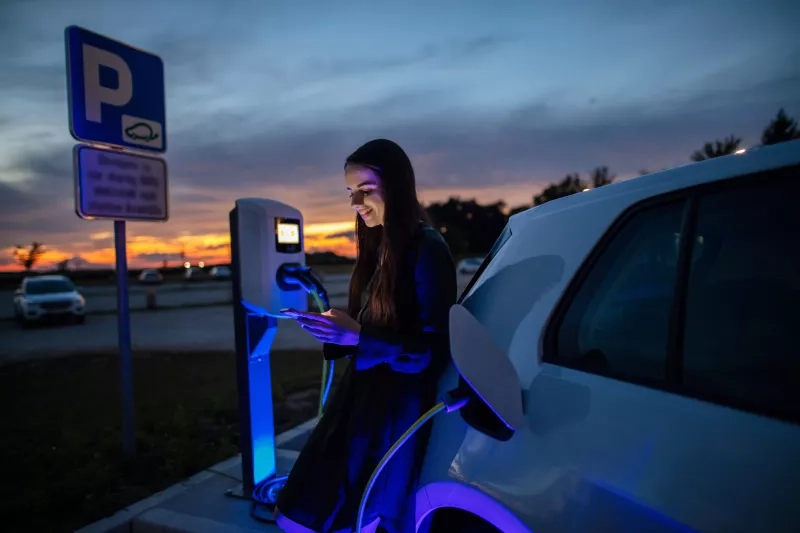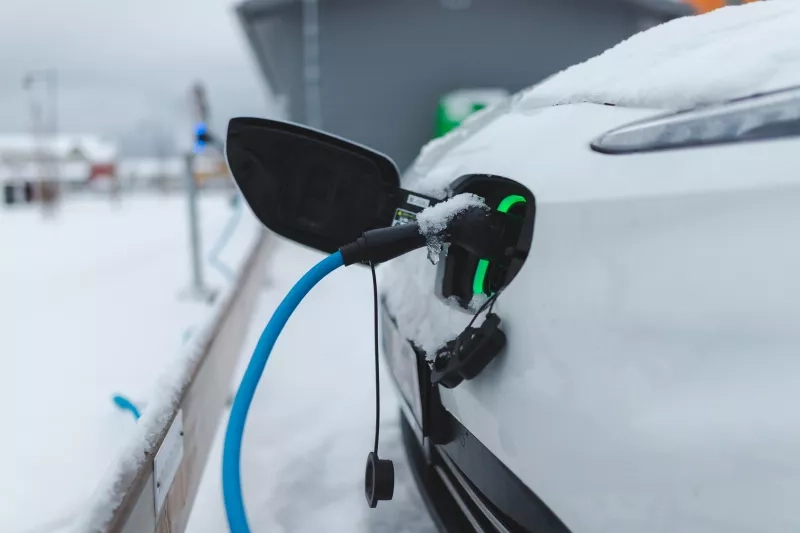
What to consider before going on an EV road trip
3 Minute Read
Whether you believe that electric vehicles (EVs) are the future of transportation or just another option on the market, there is no doubt that they are here to stay. Increasingly common and affordable - zero-emission vehicles made up almost 11 per cent of all new Canadian motor vehicle registrations in 2023, steadily taking steam year over year from their gas-powered cousins.
Smart and eco-friendly - they are an excellent choice when shopping for a new car, but like any new technology, they have their fair share of challenges. Not all EVs were designed for long-distance travel, especially not across a country as vast as Canada - but with the proper foresight and preparation, you can take your zero-emission vehicle across provincial lines and beyond.
Here are essential tips to ensure your EV road trip is successful.
Plan your route and scout your stations ahead of time

Gas or electric - cars need fuel, and with such a new mode of transportation, finding a place to power up your EV on a road trip may not always be as apparent as a gas-stop sign on the highway. When taking your EV on the long haul, planning those stops ahead is essential to avoid potential travel disasters.
While researching power stations in your destination locale is always helpful, it can be complicated to account for the longer legs of the journey. Fortunately, services like PlugShare and Energy Hub provide detailed and up-to-date interactive maps displaying all the charging docks across Canada - making your next EV Road Trip planning a little bit easier. If possible, noting your EV's range and comparing it against the distances between stations can help you decide where to stop.
Additionally, for those snowbirds flying south, the American Automobile Association (AAA) offers a free trip planning tool that displays all EV power stations across the United States, with filters for travel needs.
Check if your destination has a suitable charger for your EV
Researching your route ahead of time to understand the charging situation is an essential step in planning that can save you from some major stress upon arrival.
While EVs are a feasible means of transportation across most of Canada, not all towns are as well serviced as major cities like Montreal and Toronto, and getting your vehicle charged in rural spaces may prove more difficult than some think.
Charge Hub, a free EV support app and website, offers an exhaustive list of charging stations across Canada, organized by province and municipality. In addition to listing the stations, it outlines whether they are a 'Level 2' or 'Level 3' dock, letting you know if they suit your vehicle and how long they will take to power up.
Additionally, many hotels now offer plug-in points for EVs. Selecting a hotel ahead of time based on the availability of these power hubs can be a massive relief between busy travel schedules.
Seasonality and planning for colder temperatures

One of the most significant downsides of EV ownership for Canadian drivers is the effect of cold weather on battery performance. While the specifics differ significantly from vehicle to vehicle, the reduction in range winter causes is roughly approximated at 10-40 per cent. While this doesn't mean driving an EV in winter is unfeasible, re-evaluating long-distance travel plans during the colder months could be worthwhile.
If travel is unavoidable, it is essential to take note of your vehicle's winter range and factor it into your planning of rest stops and recharges. While more frequent stops can be tiresome, they are unavoidable in the winter.
To be even more proactive, using a heated garage or other warm spaces can moderately help with performance by keeping the vehicle and battery warm when they need to charge.
If you rent your vehicle, it can be worthwhile to select an EV better suited for lengthy commutes instead of simply going with the most affordable option.
Knowing the limits of your vehicle
A massive variety of EVs are available on the market, but not all of them are best suited for extended trips. Knowing your vehicle's limitations and planning around them is vital in both avoiding a headache and keeping you and your co-travellers safe. If uncertain, small proactive steps like packing light and efficiently driving can greatly prolong your vehicle's range.
Travel is always unpredictable, but you can help ensure a smooth trip with careful planning.
Headed south? CAA Members can take advantage of partnership offers with AAA in the United States - including a mobile charge service.




